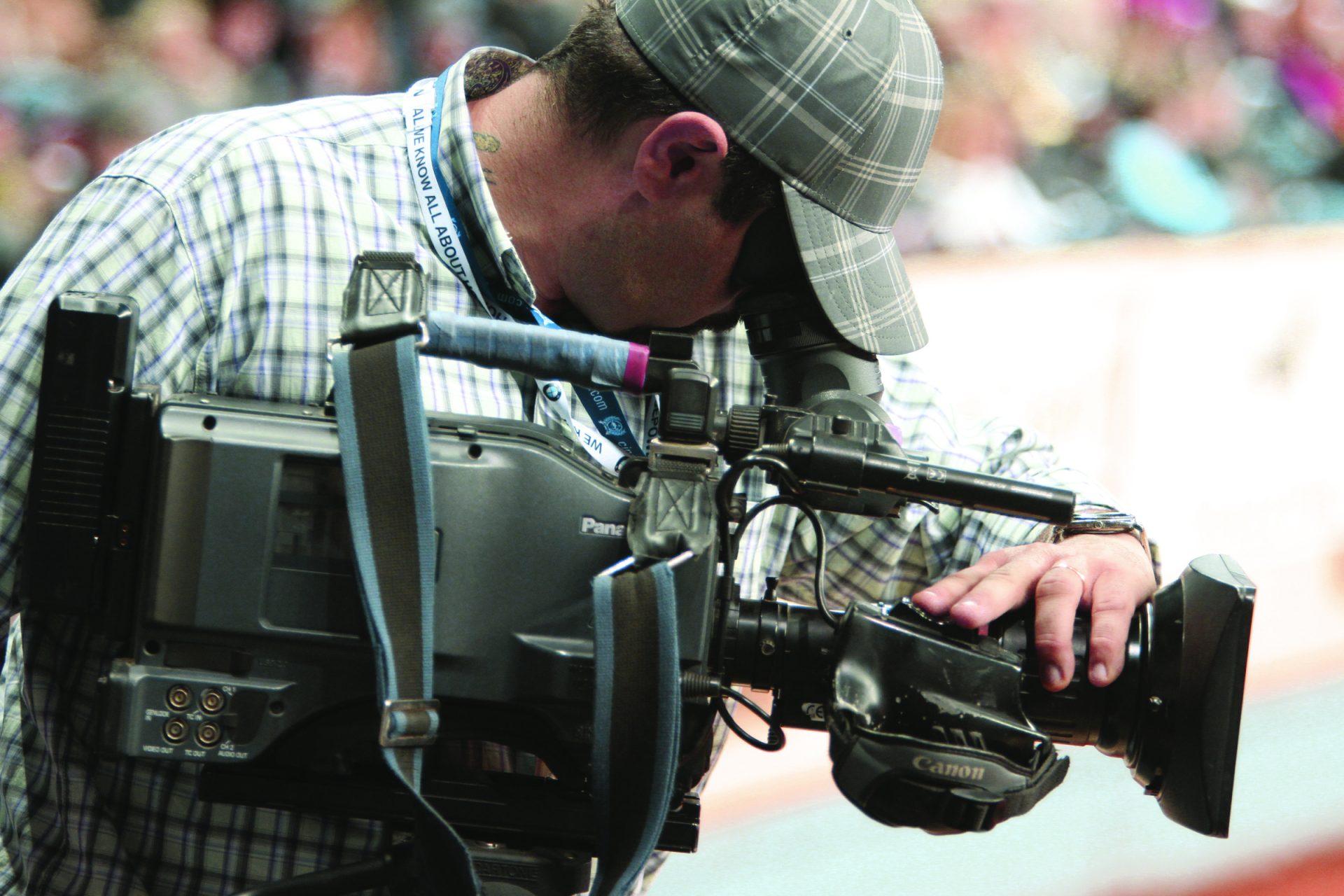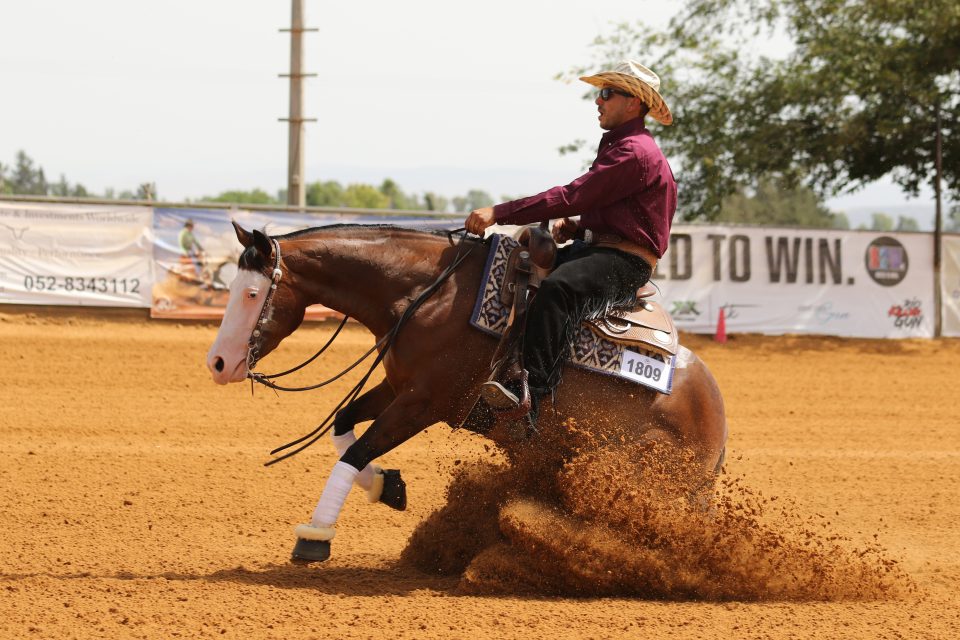Interacting with the media isn’t a natural skill for most trainers. Learn what blunders to avoid and how to have successful Interactions with the media.
By Katie Navarra

The majority of your interactions with the media are likely positive. They come after you win a major competition or celebrate an milestone and likely include a fun interview. There area also times when the media may ask for your expertise on training and management topics. These are opportunities to share your story, promote your business, and create a positive atmosphere for the larger industry.
It’s inevitable that at some point you’ll be asked to comment on something controversial—training practices, medications policies, horse care, and more.
“Our industries are under great scrutiny and must be prepared to handle media in good times and bad,” says Cindy Schonholtz, general manager for the Redding Rodeo and longtime supporter of media relations.
Controversy gets attention. Contentious topics make it much harder to sell good news. In these situations, the best to hope for is that both sides of the story will be told, Schonholtz says. You can’t always control the topic, but you can control your response. And that’s key.
In media training presentations, Schonholtz quotes author and pastor Charles R. Swindoll, “Life is 10% what happens to you and 90% how you react to it.”
Learning how the media works and what they’re looking for in a story can help you minimize the negative and communicate your message more effectively. Here you’ll learn about five common media blunders and how you can avoid them.
Blunder #1: “No Comment”
A “no comment” response, especially on a controversial topic, is often interpreted as a cover-up. Viewers or readers may even translate a “no comment” response as you being defensive, you feeling there was no wrongdoing, or you not knowing what you’re talking about.
“Not commenting doesn’t go over well,” Schonholtz says. “The only way to get your story and the facts told is to do it yourself, even when dealing with controversial topics.”
In situations where you don’t have all the facts and aren’t ready to provide details, it’s better to respond with a prepared answer. For example, state that you’re verifying the information in question. If this is your response, assure the media that you’ll get back to them. Then follow through.
You can also tell the reporter that you’re unable to talk about the topic. Or you can redirect the conversation by saying that topic is not what you’re there to discuss.
Blunder #2: Talking “Off the Record”
In journalistic lingo, “off the record” is accepted to mean that the source of the comment will not be named or identified with the information. It can also be referred to as “not for attribution,” meaning the interviewee will not be directly quoted.
Speaking “off the record” is a slippery slope. When this approach is used, it must be declared and agreed upon between the reporter and the source prior to the interview beginning. You can’t make a statement in the middle of an interview and follow it with, “That’s off the record.”
Instead, if you aren’t comfortable being associated with the information, redirect the conversation or acknowledge it’s not a topic you’re ready to discuss.
Blunder #3: Answering Hypothetical Questions
A reporter may ask you to comment on things that occurred in the past and how you would have handled them. Or a reporter may ask you to speculate about something in the future, Schonholtz notes.
Research conducted by the Predictive Media Network says that you have about a one-in-five chance you’ll get asked a hypothetical question in an interview. The best way to handle these questions is to stick to the facts. “When handling controversial issues, always state the documented facts and limit your comments to those,” Schonholtz adds.
Blunder #4: Not Telling the Truth
This is self-explanatory. Fake news is rampant. Don’t be part of the vicious cycle of telling untruths by sharing your own. The truth will eventually come out. When clients and other professionals discover that you haven’t been honest, it will damage your reputation.
“Tell the truth, and have documentation to back up your facts,” Schonholtz advises.
In situations where you’re unable or uncomfortable providing a response to a reporter’s question, it’s better to respond with a statement that you’re not prepared to discuss that topic.
Blunder #5: Being Unprepared
Avoid conducting an interview that you’re not prepared for and/or are not the correct person to address the subjects. Speaking off-the-cuff is most problematic when speaking on controversial topics.
“Respond when you’re ready; don’t rush,” Schonholtz cautions. “Consider handling controversial issues with a written statement outlining all of the facts of the situation.”
Before heading to an event where media might be present, become familiar with the news outlets and reporters in advance. Study the topics of most interest to these media contacts, and learn the tone of their work.
When a reporter requests an interview, inquire about details and the tone of the coverage.
“Ask if they will send you the questions beforehand,” Schonholtz says.
If the interview is for a print publication and there’s time prior to the deadline, sending responses via email helps you avoid being misquoted. Written statements with the facts are a good way to get the documented facts into the hands of the media while not making the story any bigger, Schonholtz says.
In addition to being prepared to talk about your business and your clients, take time to research what’s being said about the industry as a whole. Be aware of disputed topics and consider how to respond if contacted for an interview.
Preparing a list of positive talking points can also help you. Talking points are ideas that are easy to recall for certain topics. Well-crafted talking points help you collect your thoughts and have a consistent response in interviews. It’s not a document that is provided to the media; it’s something you or others in your business use to mentally prepare.
Use talking points to collect your thoughts before any type of media interview. Adrenaline and the heat of the moment can make celebratory media interactions nerve-wracking. Before heading to an event where you know media will be interviewing winners or asking participants for comments, take the time to think about how you would like to respond. Planning the message you’d like to get out about your business, your horses, and the show can make the experience less overwhelming.



